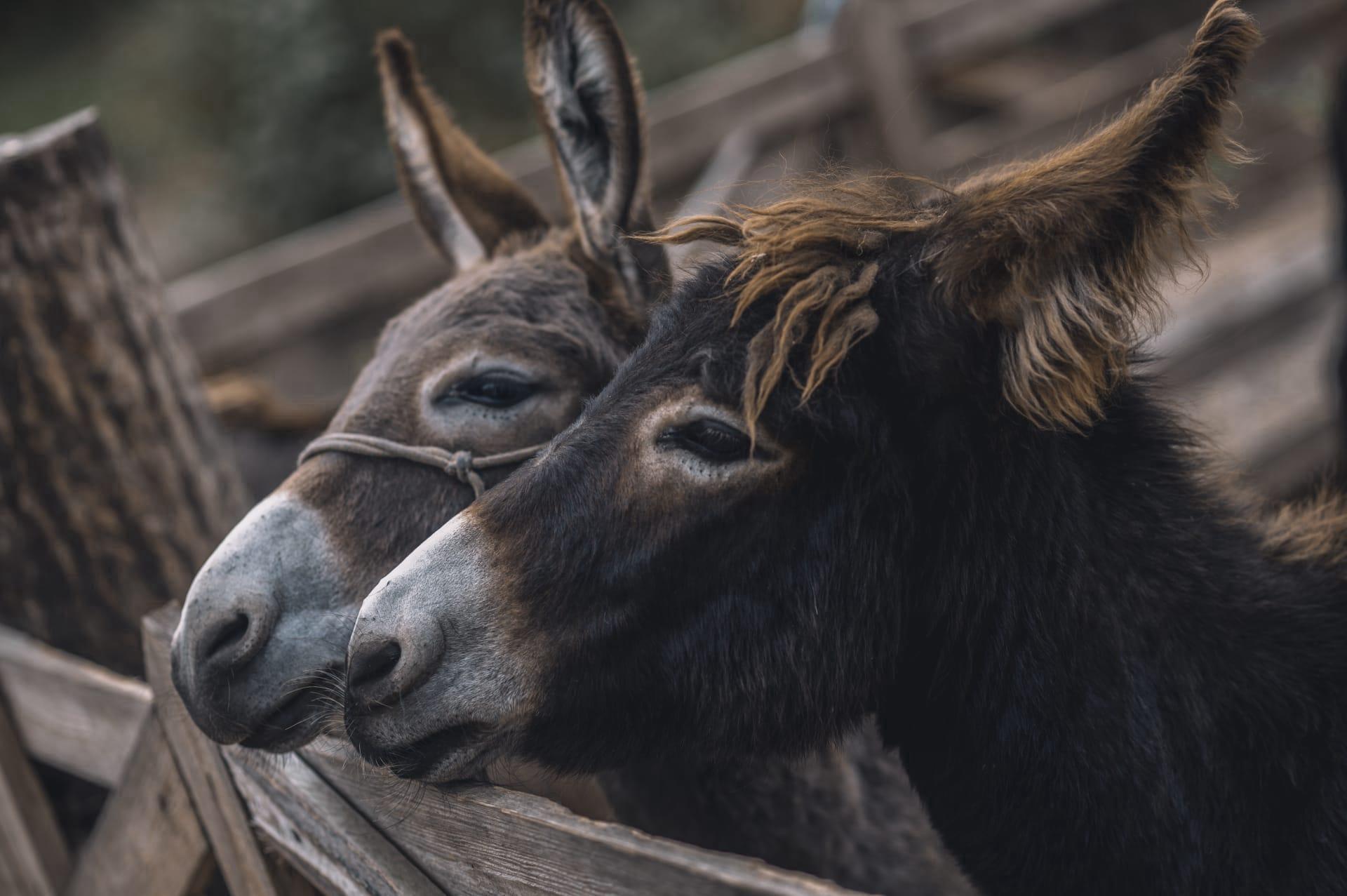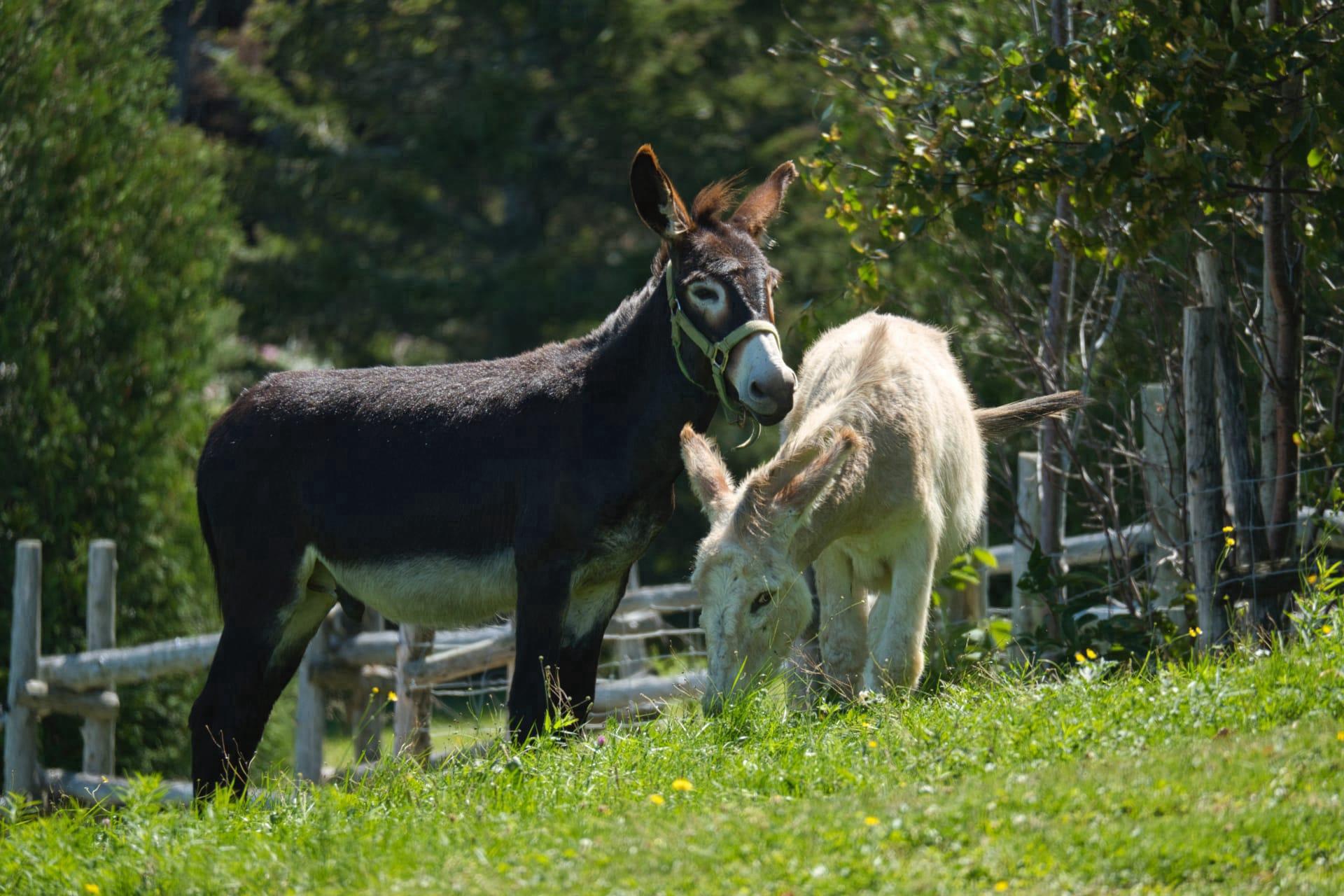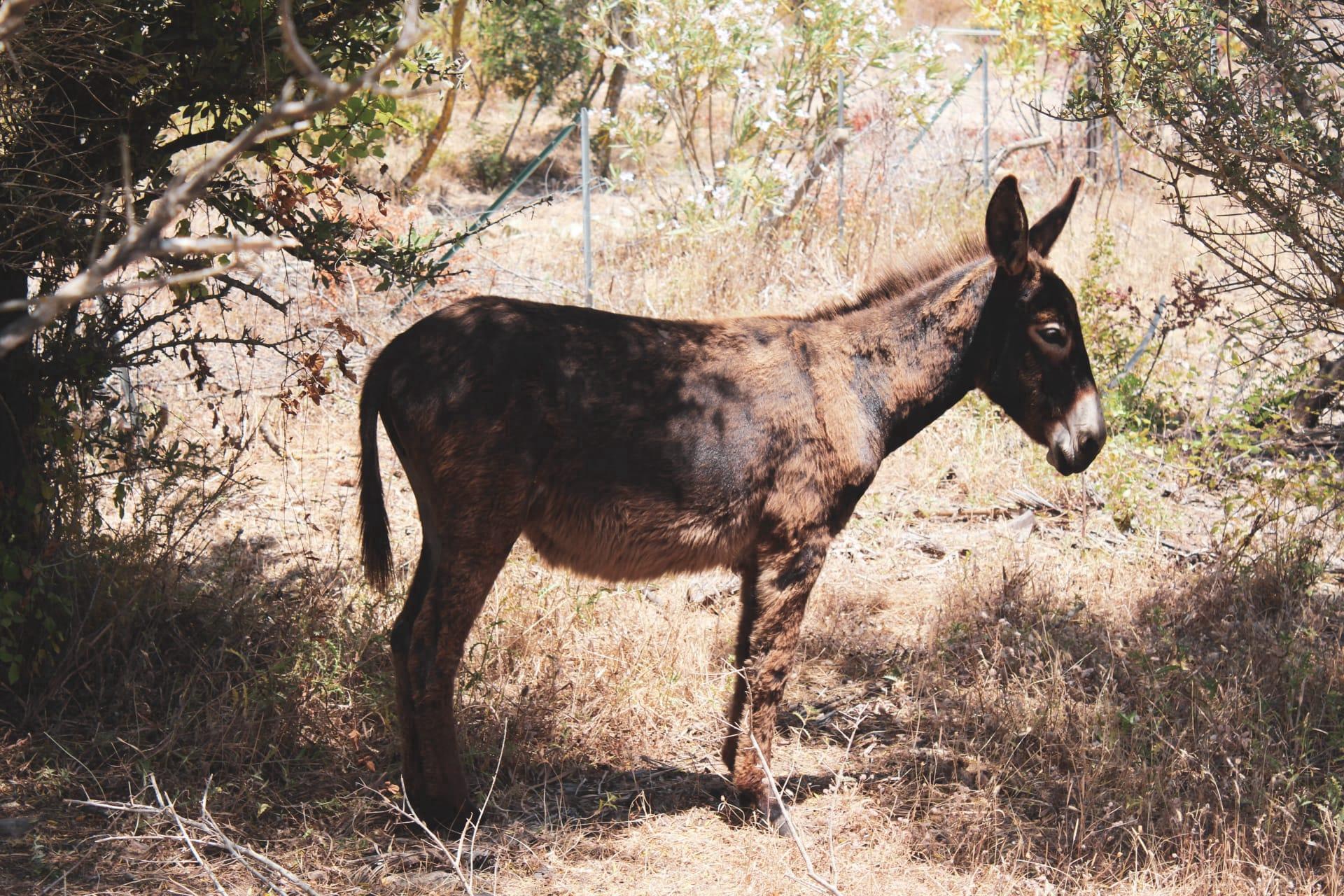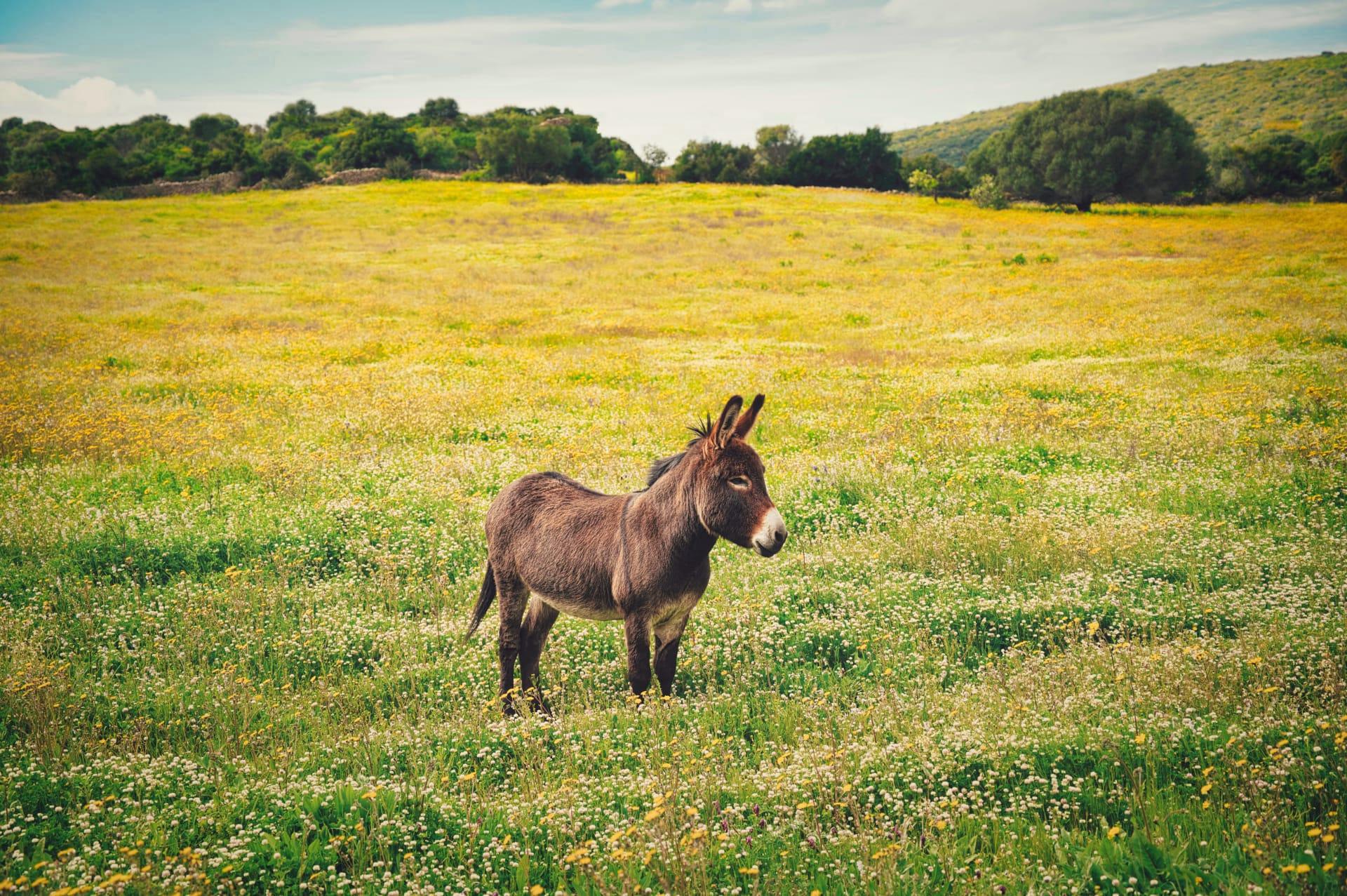1
Donkeys have exceptional memory. They can recognize areas and other donkeys they were with up to 25 years ago. This amazing memory is due to their highly developed hippocampus, a part of the brain responsible for spatial awareness and memory. In the wild, this ability helps donkeys navigate and survive in harsh environments by remembering locations of water sources and safe paths.
Another fascinating fact about donkeys is their strong sense of self-preservation. Unlike horses, donkeys are more cautious and won't easily startle or panic, making them seem stubborn. This trait comes from their need to assess situations carefully in their native desert habitats. When faced with threats, donkeys prefer to stand their ground and carefully analyze rather than flee immediately, a behavior misunderstood as stubbornness.

2
Donkeys have a unique communication system with extensive vocalizations. They use a range of brays, each varying in pitch and duration, to convey different messages. A loud, long bray can signal a greeting or a call for help, while softer, shorter brays might be expressions of contentment. Their vocal cords are capable of producing a wide range of sounds, making their brays distinct and individual.
Despite their often docile demeanor, donkeys are quite playful. They engage in social play, especially as youngsters, which includes running, jumping, and mock fighting. This play is crucial for their social and physical development. It helps them learn social cues and establish bonds within their herd. Adult donkeys also enjoy play, often using objects like balls or engaging in playful interactions with their human caretakers.

3
Donkeys have an impressive lifespan compared to many other domesticated animals. On average, a donkey can live between 30 to 50 years, with some reaching up to 60 years. This longevity is partly due to their hardy nature and ability to adapt to various environments. Proper care, diet, and a stress-free environment contribute significantly to their long lives.
Another interesting aspect of donkeys is their diet. They are efficient feeders and can survive on less food than horses of a similar size. Donkeys prefer to browse, eating a variety of vegetation including shrubs, weeds, and bark, which provides them with essential nutrients. This feeding behavior helps control overgrowth of certain plant species in their habitats, making them natural landscape managers.

4
Donkeys have a remarkable ability to carry heavy loads relative to their size. They can carry up to 20% of their body weight, which for an average donkey is about 100 to 120 pounds (45 to 54 kilograms). This strength, combined with their endurance and sure-footedness, has made them valuable work animals for thousands of years, particularly in tough terrains.
Their ears are not just distinctive but also highly functional. Donkey ears can be as long as 12 inches (30 cm), allowing them to hear sounds far away and regulate their body temperature. The large surface area of their ears contains numerous blood vessels, helping to dissipate heat and keep them cool in hot climates. Their ears also enhance their spatial awareness, aiding in navigation and detecting predators.

5
Donkeys form strong emotional bonds with other animals, including humans. They often develop close relationships with fellow donkeys, horses, and even goats. These bonds are characterized by mutual grooming, vocalizations, and staying close to each other. When separated from their companions, donkeys can exhibit signs of distress, highlighting their social nature.
A surprising fact about donkeys is their role in wildlife management and protection. Farmers often use donkeys to guard livestock against predators like coyotes and wolves. Their protective instinct, combined with their loud brays and aggressive behavior towards intruders, makes them effective at deterring threats, providing a natural and eco-friendly method for safeguarding other animals.